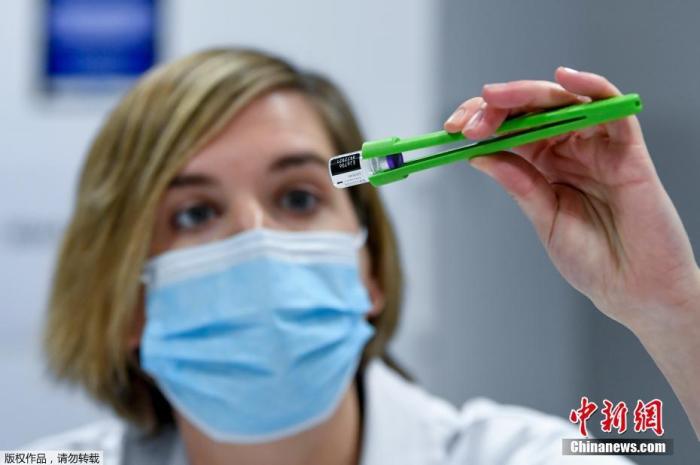China News Service, March 4, reported that as the scope of global new crown vaccination continues to expand, South Korea, Singapore, and the European Union are considering launching "vaccine passports" to ease cross-border personnel exchanges that have almost stalled due to the epidemic.
At present, this idea is being explored and researched and needs to be improved.
On March 1, the platform of a suburban railway station in Paris, France, was affected by the epidemic.
Photo by China News Agency reporter Li Yang
What is a "vaccine passport"?
A "vaccine passport" is not a real passport, but a voucher that records information such as COVID-19 vaccination to prove the vaccination status of cross-border travelers.
The New York Times pointed out that a "vaccine passport" is a paper card or smart phone code issued by governments to certify that the holder has been vaccinated against the new crown.
The purpose of the "vaccine passport" is to allow families to reunite, to restart the economy, and to restore the vaccinated population to a certain degree of normalcy, while ensuring that all of this does not lead to the spread of the virus.
In addition, the "vaccine passport" can also be bound to the user's electronic identity information and travel information.
Zurab Pololikashvili, Secretary-General of the United Nations World Tourism Organization, said that the "vaccine passport" may be crucial to restarting the tourism industry.
Data map: On December 27, 2020, many member states of the European Union officially launched the new crown vaccination work.
The picture shows Belgian medical staff preparing for the new crown vaccination work.
Many countries intend to explore the "vaccine passport" program
Recently, the European Commission stated that it will launch a "Green Digital Pass" program on March 17. The pass will include a certificate of vaccination, virus test results for those who have not been vaccinated, and recovery information for previously infected people.
European Commission President Von der Lein said on March 1st local time that the move is to gradually resume cross-border work and tourism.
Countries such as Spain and Greece, which have developed tourism industries, expressed their support for the "vaccine passport" program.
As the tourism industry of these countries has been severely hit by the epidemic, they hope to gradually open up the tourism industry this summer through this move.
At present, Israel has introduced a "green pass" similar to a "vaccine passport", and public facilities such as stadiums, concert halls and hotels will only be open to holders.
In addition, South Korea, Singapore, Thailand and other countries are also discussing whether to implement a "vaccine passport."
On March 2, local time, Taeho Yoon, head of the Epidemic Prevention and Control Team of the Central Emergency Response Headquarters of South Korea, said that the government has begun to discuss the matter, including how foreigners should be quarantined when they enter the country with a "vaccine passport" and related certificates, and vaccines. Effect and so on.
Singapore’s Prime Minister Lee Hsien Loong recently revealed that Singapore is discussing mutual recognition of new crown vaccination certificates with willing countries, and said that this is a necessary step to resume international tourism.
Thailand has also stated that it will consider exempting passengers who hold “vaccine passports” issued by other countries from compulsory isolation and entry restrictions.
Earlier, the Philippine House of Representatives and former Speaker of the House of Representatives Cayetano also proposed to issue "vaccine passports" to vaccinators, in order to help the public restore confidence and economic revitalization, so that the Filipino people can restore contact with the country and the world.
WHO: Unknown factors in vaccination, "vaccine passport" concept to be perfected
Regarding the “vaccine passport”, WHO stated in a temporary position paper in February that, given the effectiveness of vaccination in reducing the spread of the virus, there are still serious unknown factors; in addition, given the limited supply of vaccines, it is important for travelers Priority vaccination may lead to insufficient supply of vaccines for severely ill high-risk groups. Therefore, it is not recommended for countries to make it a necessary condition for entry and exit.
However, supporters believe that the "vaccine passport" will greatly alleviate the impact of the epidemic on the international tourism industry, and at the same time, it will gradually restore the flow of cross-border people, which is conducive to the recovery of the global economy.

